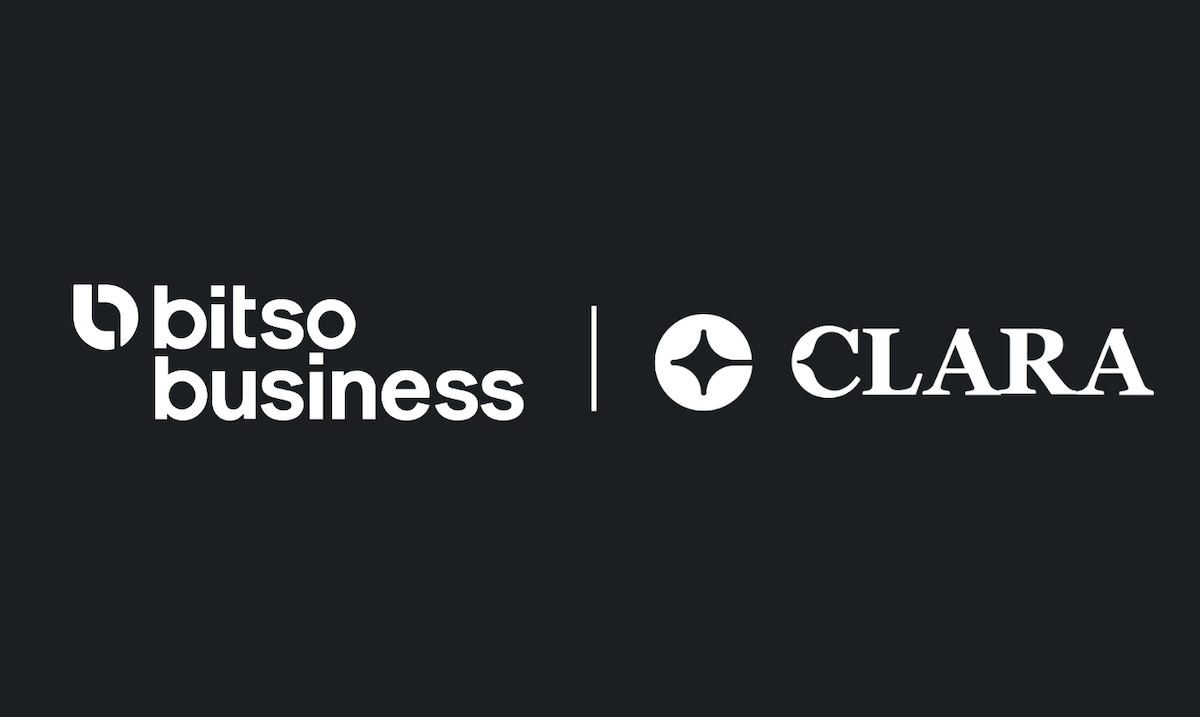
Spend management platform Clara has launched a partnership with crypto-focused financial services firm Bitso.
Complete the form to unlock this article and enjoy unlimited free access to all PYMNTS content — no additional logins required.
yesSubscribe to our daily newsletter, PYMNTS Today.
By completing this form, you agree to receive marketing communications from PYMNTS and to the sharing of your information with our sponsor, if applicable, in accordance with our Privacy Policy and Terms and Conditions.
The collaboration, announced Wednesday (Sept. 17), will see Clara work with Bitso Business, the company’s B2B arm, to launch stablecoin-backed payments and corporate cards for businesses in Latin America.
“This collaboration enables companies holding stablecoins in Bitso to use those assets as collateral for payments products issued by Clara,” the companies said in a news release.
“Businesses can unlock the full Clara ecosystem, including smart corporate cards, domestic and international payments, bill pay, and AI-powered financial software, without having to liquidate their crypto holdings.”
According to the release, Bitso verifies a company’s stablecoin holdings and serves as a guarantor, establishing the collateral agreement directly with Clara. This structure lets approved clients access Clara’s full payment ecosystem.
Bitso Co-founder and CEO Daniel Vogel said the collaboration is happening as his company is witnessing a “massive trend” in businesses turning to stablecoins to manage their treasuries.
Advertisement: Scroll to Continue
“This partnership with Clara is a direct response to the growing demand from our Bitso Business clients,” Vogel added. “The timing is perfect, there’s an incredible appetite for products built on stablecoins, and together with Clara, we’re able to unlock new operational power from these assets.”
In other stablecoin-related news, PYMNTS wrote last week about the potential threat these digital assets could pose to community banks and credit unions.
“In the crypto-native era, stablecoins served primarily as trading chips for digital asset investors,” that report said. “But as corporations, FinTech platforms and payment networks integrate stablecoins into their systems, they are increasingly positioned as substitutes for traditional bank deposits.”
As covered here earlier this summer, industry groups such as the American Bankers Association, the Bank Policy Institute and the Consumer Bankers Association have warned that the stablecoin legislation, the U.S. GENIUS Act, includes language that will let some cryptocurrency exchanges indirectly pay interest to stablecoin holders.
The concern among banks is that this will create an unequal playing field and usher in a wave of deposit outflows if customers determine they want to earn yield by keeping stablecoins at crypto exchanges rather than holding fiat currency with banks.
“Community banks and credit unions have typically competed on intimacy, local knowledge and personal service,” PYMNTS added. “In the age of digital wallets and blockchain payments, those advantages are harder to translate into customer loyalty. If deposits can migrate to frictionless, programmable tokens that live outside the traditional banking system, the value proposition of a local branch network begins to erode.”
For all PYMNTS B2B coverage, subscribe to the daily B2B Newsletter.
Clara and Bitso Team to Launch Stablecoin-Backed Payments
SEC and CFTC Delay Amendments to Investment Fund Adviser Reporting Form
Businesses Uncertain Who Will Pay New Port Fees Charged on Chinese Ships
Kraken and Circle Join Forces to Expand Stablecoin Access
We’re always on the lookout for opportunities to partner with innovators and disruptors.
